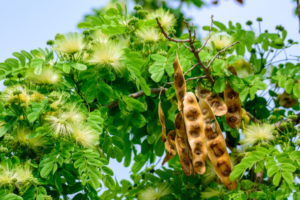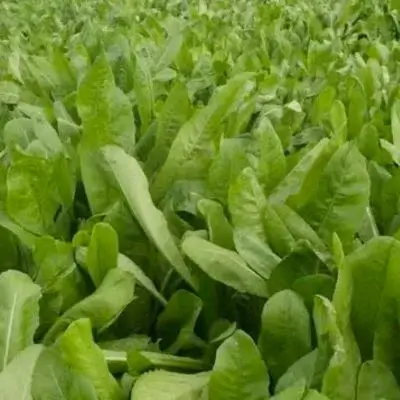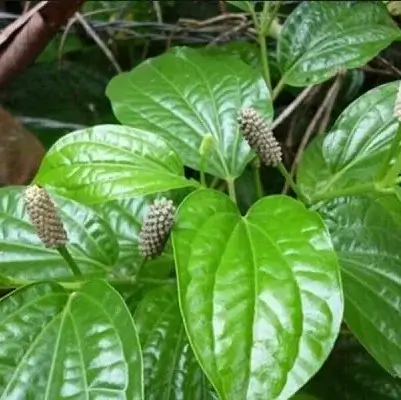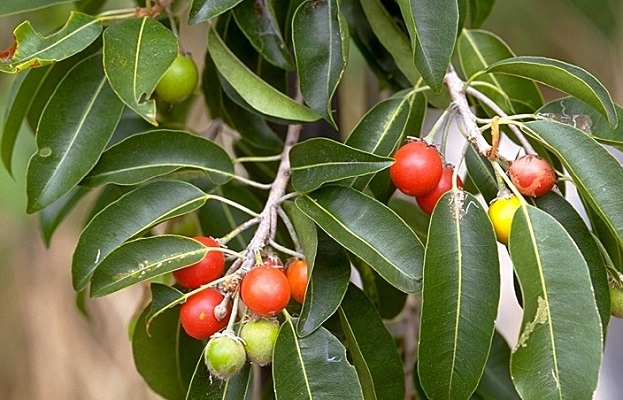On This Page
Shirish (Albizia Lebbeck) – Benefits, Uses and Medicinal Properties
Introduction
Shirish, an Ayurvedic anti-poisonous herb and is considered the most powerful antidote against a large number of animal and plant origin poisons. The experiments have proven the property of this herb, like antimicrobial and Immune-modulator actions. Shirish is used in treating Aama visha (difficult-to-digest products generated within the body). Aama visha creates an imbalance of three doshas namely Vata, Pitta, and Kapha. Shirish is one of the best herbs for curing different types of allergies.
Action of Shirish (Albizia Lebbeck) in Allergies
Phytoconstituents found in Albizia lebbeck are having the properties to suppress histamine-induced allergic reactions like bronchospasm, pulmonary eosinophilia, spreading skin diseases like erysipelas, and anaphylaxis in food allergies.
Allergic reactions are mediated mainly by Histamine H1 receptor (H1 R) and Histidine Decarboxylase (HDC) genes. The expression level of both H1 R and HDC will be directly proportional to the severity of the allergic symptoms. Administration of Shirish bark extract resulted in a significant reduction of allergy symptoms in patients.
Vernacular Names
| Sanskrit Name | Shukriya, Kapitana, , Bhandira Mrudupushpa,Bhandi. |
| Hindi Name | Siris |
| English Name | Lebbek Tree, Flea Tree, Frywood, And Woman’s Tongue Tree |
| Telugu Name | Dirisena Chettu |
| Tamil Name | Vaagai |
| Malayalam Name | Nenmenivaga |
| Kannada Name | Bage Mara |
| Punjabi Name | Siri, Shari |
| Gujarati Name | Sarsado |
| Bengali Name | Sirosh |
| Marathi Name | Siras |
Botanical Name
Albizia Lebbeck, Mimosa Lebbeck
Family
Legumes-Mimosoideae
Morphology of Shirish (Albizia Lebbeck)
It is a long tree that grows up to 50-100 feet with a wide trunk of 3-4 feet in diameter. There are three best ways to identify Albizia lebbeck Shirish visually:-
- The gum keeps coming out of the tree, like acacia gum.
- The leaves are similar to tamarind leaves.
- The flowers are very tender and are having an appearance of a bunch of threads.
Ayurveda Reference of Shirish (Albizia Lebbeck)

Geographical Distribution of Shirish (Albizia Lebbeck)
Albizia lebbeck or Shirish is one of the most widespread and common species of Albizia in the world. It is found extensively in all the provinces of India as well as in different parts of south-east Asia and northern Australia. In the sub-range of the Himalayas, this herb is found up to the height of 3800 feet.
Phytoconstituents of Shirish (Albizia Lebbeck)
Chemical constituents in Shirish bark are condensed tannins, saponins, gums and acid isomers, etc. These metabolites are known to possess action against several pathogens and aid the antimicrobial action. Albizia lebbeck is also known for its traditional use in the treatment of food, skin, and nasal allergies.
Dosage of Shirish (Albizia Lebbeck)
- Powder (Choornam) – 3-5 gm per day.
- Juices (Swarasam) – 20-30 ml two times a day.
- Decoction (Kwatham) – 60-100 ml per day.
Medicinal Properties of Shirish (Albizia Lebbeck)
- Shothhara – Anti-inflammatory
- Visarpa Ghana – Relieves herpes, relieves spreading skin disease
- Kasahara – Relieves cold and cough
- Vranahara – Brings about fast wound healing
- Vishapaha – Useful in treating poisoning
- Varnya – Good for skin, improves complexion
- Kushtaghna – Useful in skin diseases
- Kandughna – Relieves itching, pruritus
- Twak Doshahara – Detoxifies skin
- Shwasahara – Helps in asthma, COPD, wheezing, breathing problem

Have A Health Issue?
Consult Online
- Dr. Sahil Gupta (B.A.M.S., M.H.A.)
Ayurvedic Allergy Specialist
CEO & Founder of IAFA®
Home Remedies of Shirish (Albizia Lebbeck)
Ayurvedic herbs are clinically proven against various diseases. Due to the overuse of chemically processed drugs, which results in a higher incidence of adverse reactions, people are now motivated to use herbal solutions. The fine powder of Shirts bark has a general anti-inflammatory and analgesic effect on wounds, lymphadenitis, and skin disease.
- Shirish in Dental Care: Ayurvedic kashaya (decoction) of its bark is used as a gargle due to its antimicrobial property for cleansing of the buccal cavity. Shirish stem/twig is used from ancient times for brushing teeth.
- Shirish in Eye Allergies: 2 drops of Shirish fresh leaf juice is instilled in each eye to prevent seasonal eye allergy, excess lacrimation, and night- blindness.
- Shirish in Nasal Allergies: 2-4 drops of Shirish fresh leaf juice is instilled into each nostril to prevent seasonal nasal allergy and sinusitis.
- Shirish in Headache: Fine paste of Shirish flower is applied over the forehead in headache (migraine).
- Shirish in Skin Allergies: Fine paste of its bark or leaf is applied over the skin lesions such as viral herpes or blisters associated with burning and itching.
Dr. Gupta’s IAFA is conducting a wide range of studies with all-important herbs. The proven clinical, as well as laboratorial studies, are used in the successful treatment of various ailments. Our specialists are using 100% natural substances for the treatment of our followers and follow all the Ayurvedic measures for assuring complete health through natural friendly methods.
Was this Page Helpful?
Read More Articles

Kasini (Cichorium intybus)
Know about the uses, benefits, and medicinal properties of Chicory, Kasini (Cichorium…









